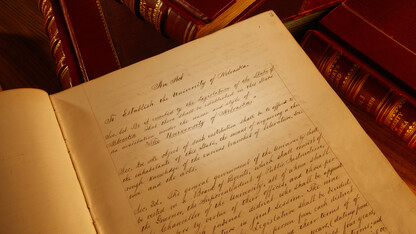
The University of Nebraska–Lincoln's inclement weather policy will be updated at the end of the fall 2021 semester to reflect the implementation of instructional continuity into the campus’ closing options and will be effective at the start of the spring pre-session on Jan. 3, 2022. The university’s campus closing options with regard to classes will be:
- all classes are canceled.
- in-person classes are canceled and follow instructional continuity plans.
- all classes are conducted as usual.
Beginning Jan. 3, all instructors should include a statement on syllabi to explain the mode of communication they will use (e.g., @huskers.unl.edu email or Canvas) if in-person classes are canceled and the campus follows instructional continuity plans:
If in-person classes are canceled, you will be notified of the instructional continuity plan for this class by [mode of communication].
Students will be expected to be responsible for checking these notifications for instructional continuity assignments or virtual class meetings.
Instructors may choose the way in which their courses maintain continuity. Guidance is available at go.unl.edu/instructionalcontinuity.
Instructional continuity is a result of the extreme weather in spring 2021 that caused campus closures during a semester already compressed due to the pandemic. In response to faculty senate academic leaders and faculty requests, the university initiated an instructional continuity plan to ensure academic quality, course integrity, and student learning.
That plan was formalized by a cross-campus workgroup at the request of the executive vice chancellor. The workgroup included representatives from across colleges and departments, Faculty Senate, Association of Students of the University of Nebraska, and campus administration.







